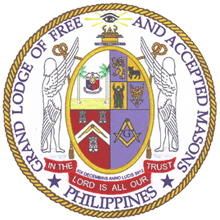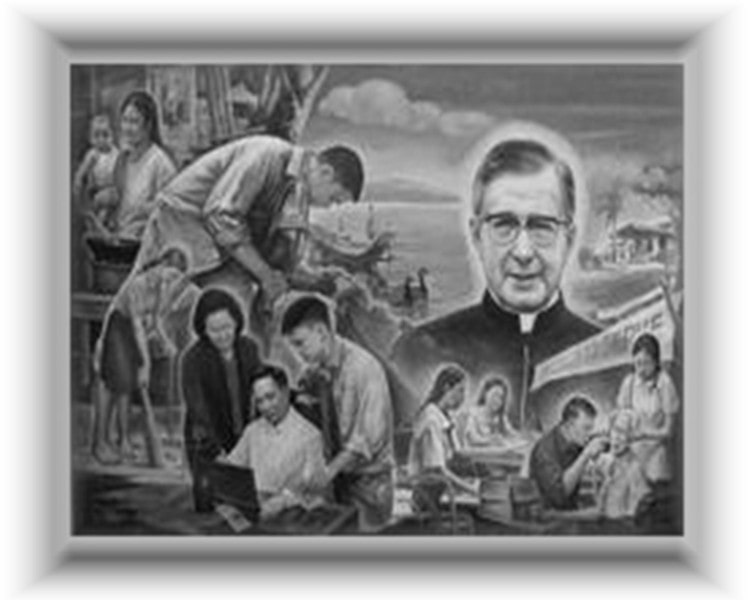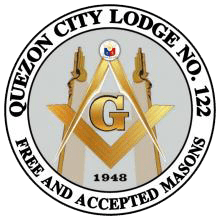General Information
OFFICIAL WEBSITE OF
QUEZON CITY LODGE NO.122

Named after Quezon City where it is located. The creation of Quezon City was the consuming dream of President Manuel L. Quezon. He picked the site of the city and did the entire spade work leading to its establishment.
Who are Freemasons?

Today, the more than four million Freemasons around the world come from virtually every occupation and profession. Within the Fraternity, however, they all meet as equals. They come from diverse political ideologies, but they meet as friends. They come from virtually every religious belief, but they all believe in one God.qc122-members
One of the most fascinating aspects of Freemasonry has always been how so many men, from so many different walks of life, can meet together in peace, never have any political or religious debates, always conduct their affairs in harmony and friendship, and call each other “Brother.”
Many of our nation’s early patriots were Freemasons – Jose Rizal, Apolinario Mabini, Emilio Aguinaldo, Manuel L Quezon, Gregorio Aglipay, Jose P Laurel Sr. and many other more. In other countries – George Washington, the Marquis de LaFayette, Benjamin Franklin, John Hancock, Paul Revere, John Paul Jones, Rufus King, James Otis, Baron von Steuben, and Joseph Warren – Oliver Ellsworth, John Marshall, William Howard Taft, Frederick Vinson, and Earl Warren were Freemasons.
Famous Masons include Simon Bolivar, James Boswell, Robert Burns, Edward VII, Giuseppe Garibaldi, George VI, Goethe, Rudyard Kipling, Haydn, Mozart, Will Rogers, Sir Walter Scott, Jean Sibelius, Voltaire, and many others.
What do Freemasons believe in?
All Freemasons believe in one God and respect for each other.
What do Freemasons do?
Freemasons are respectable citizens who are taught to conform to the moral laws of society and abide by the laws of the government under which they live. They are men of charity and good works. They remain unchallenged as “the world’s greatest philanthropy.”
The Freemasons of America contribute more than one million dollars every day to charitable causes which they, alone, have established. These services to mankind represent an unparalleled example of the humanitarian concern of this unique and honorable Fraternity.
What are the qualifications for being a Freemason?
Freemasonry is proud of its philosophy and practice of “making good men better.” Only individuals believed to be of the finest character are favorably considered for membership. Every applicant must advocate his belief in the existence of a Supreme Being (atheists are not accepted into the Fraternity).
How does a man become a Freemason?
In most Masonic Jurisdictions, an individual must ask a Masonic friend to recommend him for membership. He must sign a petition, stating his age, occupation, and place of residence. Members of the Lodge vote by secret ballot which, in most Jurisdictions, must be unanimous.
What is a Masonic Lodge?
Most Masonic Lodges meet at least one evening a month to conduct their regular business and vote on petitions for membership. It is here that the bonds of friendship and fellowship are strengthened.
What are the Masonic Degrees?
A Candidate receives three Masonic Degrees, concluding with the Third (or Master Mason’s) Degree. The Degrees are solemn, enlightening, and an enjoyable experience with no uncomfortable or embarrassing moments. It is here where the principles of Freemasonry are taught and where the new member learns that his family and his livelihood are to be considered above Freemasonry. Every Master Mason is welcomed as a “Brother” in any of the thousands of Regular Masonic Lodges throughout the world.
What Freemasonry is not. . .
It is often necessary to point out some things that Freemasonry is not and has never claimed to be:
Freemasonry is not a religion. It has a philosophy of its own that is in harmony with churches, schools, and all other worthy institutions. The teachings of the Fraternity transcend all denominational and sectional divisions. Its sympathies are as broad as humanity.
Freemasonry is not, itself, a charitable institution. One of the fundamental principles of Freemasonry is the practice of charity and a Mason necessarily contributes to the relief of the afflicted according to his ability, but this and similar modes of conduct must proceed from a purity of life and conduct that is one of the great objectives of all Masonic teachings.
Freemasonry does not insure its members against the detrimental effects of old age, provides no sick benefits, issues no policies on the lives of its members, and pays no death benefits of any kind. The matter of individual relief is confined to those cases where it is necessary, in spite of all the efforts of a brother or of his family to maintain economic independence. A member’s part in this procedure is far more likely to be that of a contributor rather than a beneficiary.
Freemasonry does not lend itself as a means of promoting selfish interests. Any underlying purpose of such a nature will eventually become apparent to other members and one will eventually suffer the loss of their respect as a result.
